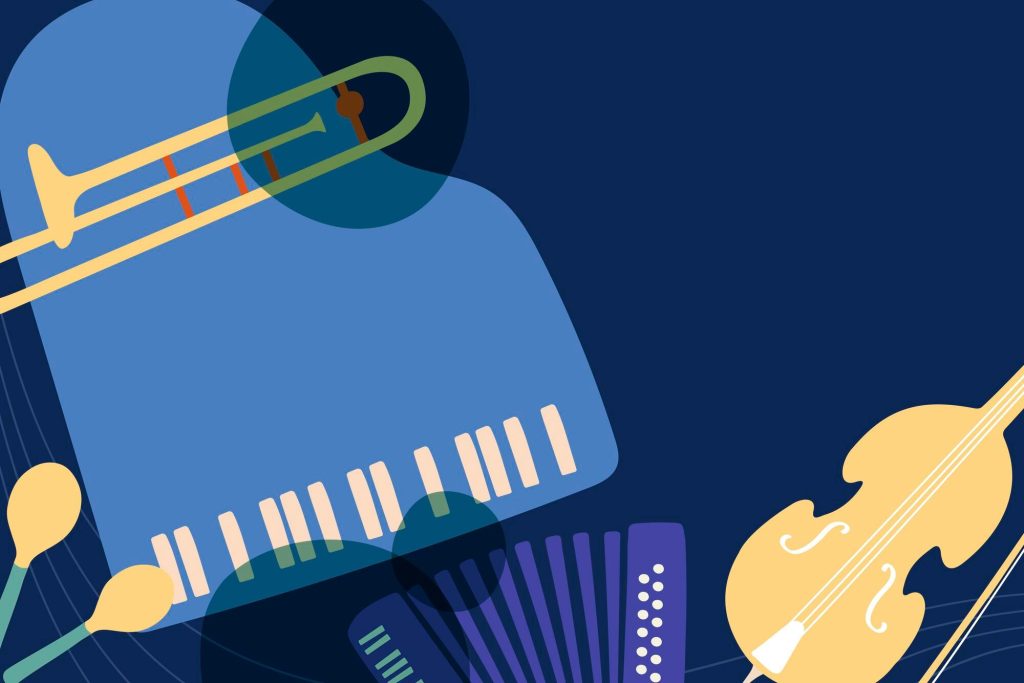Background music affects your work rhythm in powerful ways. Whether you’re trying to boost productivity, focus, or creativity, the right tunes can shape how you work throughout the day. While some may find music distracting, others experience improved concentration and performance. So, how exactly does background music affect your work rhythm? Understanding the psychology of music and choosing the right genres can enhance your workday and help you perform at your best.

The Science Behind Music and Work Rhythm
The impact of music on productivity and focus has been studied extensively. Research published in the Journal of Consumer Research suggests that music can profoundly influence cognitive performance. The type of music played, the volume, and the context all have a significant impact on how music interacts with our brain and work rhythm. For example, upbeat music might stimulate creativity, while softer, instrumental music may help with concentration and focus (Journal of Consumer Research, 2023).
Understanding how background music affects your work rhythm starts with the idea that music impacts mood and cognitive function. Music with a steady tempo can synchronize brainwaves, potentially enhancing the work rhythm and making tasks feel less monotonous.
How Background Music Enhances Your Work Rhythm
Whether you’re working from home or in an office setting, the right background music can influence how efficiently and effectively you complete tasks. Here’s how music can impact your work rhythm:
1. Music for Creative Tasks: Unlocking New Ideas
Why it works:
For tasks that require creativity, such as brainstorming, writing, or designing, music can stimulate the mind and encourage new ideas. Research has shown that listening to certain types of music can create a flow state, a mental zone where creativity and productivity converge.
What to listen to:
- Classical music: Composers like Mozart are often associated with stimulating creativity. Classical music can provide a mental backdrop for brainstorming and problem-solving.
- Lo-fi beats: Known for its calming and non-distracting nature, lo-fi music is ideal for creative tasks, providing a gentle beat without overwhelming the listener.
- Ambient music: Artists like Brian Eno are famous for crafting ambient soundscapes that encourage deep thought and reflection.
These genres can help set the tone for creativity, helping you get into the right mindset for tackling creative projects.
2. Music for Focus: Improving Concentration and Task Completion
Why it works:
When working on tasks that require concentration, like writing reports or solving complex problems, music can help eliminate distractions and keep you focused. Research from the Psychology of Music Journal suggests that instrumental music helps with focus and attention, as it doesn’t interfere with verbal processing (Psychology of Music Journal, 2023).
What to listen to:
- Instrumental music: Classical pieces, electronic music, and ambient sounds are ideal for deep focus.
- White noise or nature sounds: These sounds can help drown out environmental distractions, allowing you to stay immersed in your work.
Instrumental or neutral music creates a sound barrier, allowing you to concentrate fully on the task without the interference of lyrics or overwhelming beats.
3. Music for Energy: Boosting Motivation and Productivity
Why it works:
Certain tasks, like physical work or repetitive actions (sorting, organizing, etc.), can benefit from energetic music. Upbeat music can help boost your energy levels, encouraging you to power through tasks and stay motivated.
What to listen to:
- Upbeat pop or dance music: Fast tempos and high-energy beats help you stay motivated, especially during physical or monotonous tasks.
- Rock music: Songs with strong beats and catchy rhythms can keep your energy up throughout the day.
When your work requires movement or you’re feeling sluggish, energizing music can inject a burst of enthusiasm into your routine, helping you work with more vigor.
Best Practices for Integrating Background Music into Your Work Routine
While background music affects your work rhythm, the way you integrate it into your routine also matters. Here are a few tips to get the most out of background music:
1. Match Music to Task Type
- For tasks that require creativity, go for instrumental or ambient music to inspire ideas.
- For concentration-heavy tasks, choose classical music or low-tempo sounds to maintain focus.
- For tasks that need a boost of energy, opt for high-tempo music like pop or rock to keep you motivated.
Choosing the right genre for the type of work you’re doing can significantly enhance your productivity and maintain the flow of your work rhythm.
2. Control the Volume
Volume is a crucial factor in ensuring that music enhances your work rhythm. Too loud, and it becomes a distraction; too quiet, and it might not have the desired effect. Keep the volume at a level where it’s present but not overwhelming, allowing it to blend seamlessly with your work environment.
3. Experiment with Playlists
Various streaming platforms, such as Spotify or Apple Music, offer playlists specifically designed for different types of work. Playlists like “Focus Flow” or “Deep Work” feature music curated to enhance focus and productivity, so consider using them to experiment and find what works best for you.
How to Choose the Right Music for Your Work Rhythm
Choosing the right music can depend on personal preference and the nature of the work. Here are a few ways to ensure your music selection is enhancing your work rhythm:
- Consider the task: Be mindful of the type of work you’re doing. If it requires deep thinking, go for something instrumental. If you need motivation, choose something more upbeat.
- Experiment with genres: Try different types of music and notice how each affects your mood and productivity.
- Use music as a reward: If you find it hard to stay focused, use music as a motivator. Promise yourself a music break once you’ve completed a task.
Conclusion: Background Music Can Transform Your Work Rhythm
Background music, when chosen correctly, has the potential to transform your work rhythm. It can improve focus, inspire creativity, and even boost energy levels. By tailoring your music to the tasks at hand and experimenting with different genres, you can optimize your productivity and find a rhythm that works for you.
Next time you sit down to work, consider incorporating the right type of music to enhance your focus and creativity. With the right soundtrack, you may discover a more effective and enjoyable way to work.
References:
- Journal of Consumer Research (2023) Music and Cognitive Performance. Available at: https://academic.oup.com/jcr (Accessed: 28 April 2025).
- Psychology of Music Journal (2023) The Effects of Music with Lyrics on Cognitive Tasks. Available at: https://journals.sagepub.com/home/mpy (Accessed: 28 April 2025).
- APA (2023) How Music and Hobbies Can Improve Mental Health. Available at: https://www.apa.org/news/press/releases/2023/02/creative-hobbies (Accessed: 28 April 2025).









